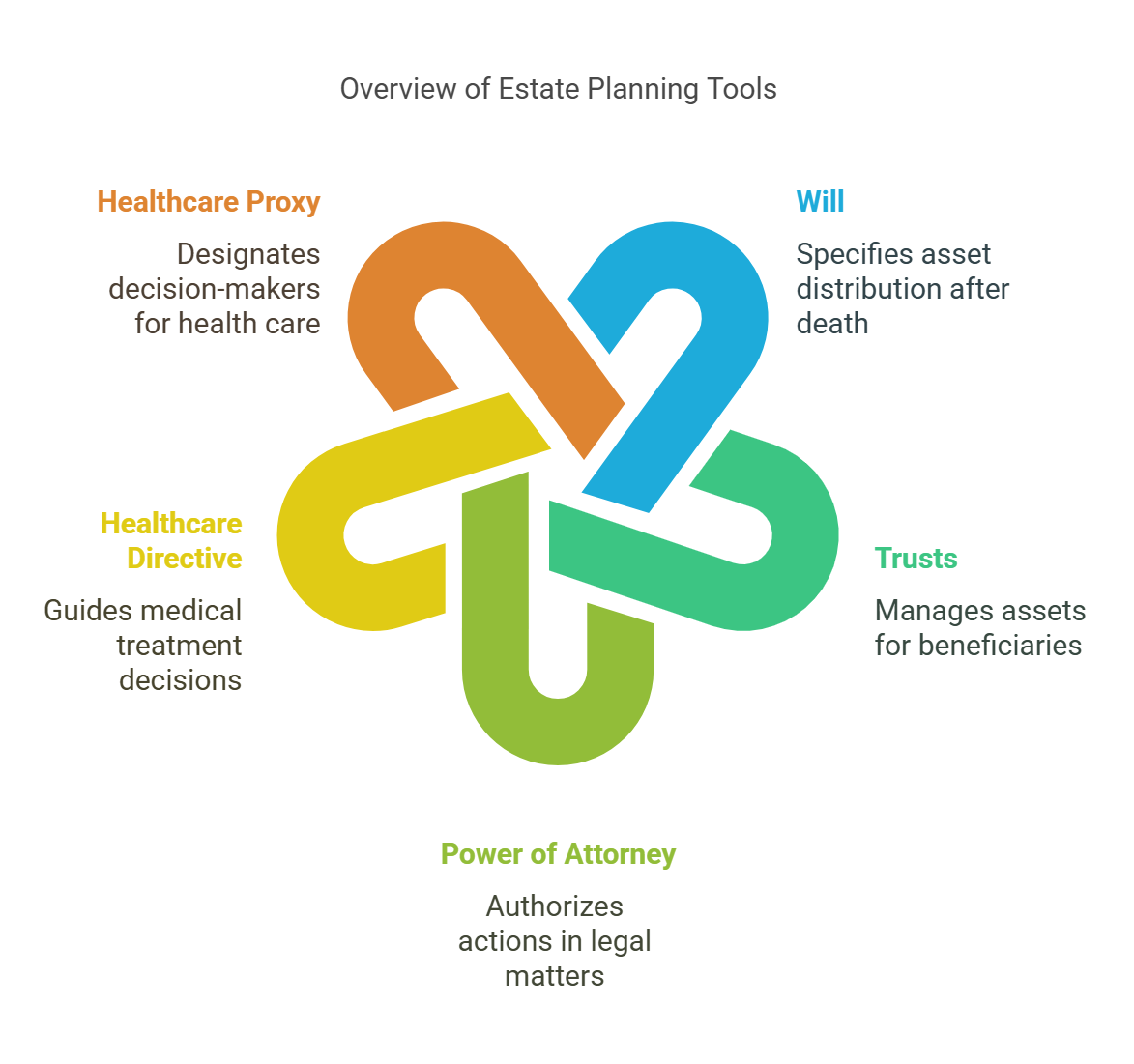Estate Planning Documents
Tools for Wealth Transfer and Protection
-
Will:
-
Explanation: A legally binding document that specifies how your assets are to be distributed upon your death. It allows you to name beneficiaries, designate guardians for minor children, and express your wishes regarding funeral arrangements.
-
Key Components:
- Beneficiaries: Individuals or entities who will inherit your assets.
- Executor: The person responsible for administering your estate and carrying out the instructions in your will.
- Specific Bequests: Designating specific assets to specific individuals (e.g., "I leave my antique watch to my son John").
- Residuary Estate: Specifies how the remaining assets (those not specifically bequeathed) are to be distributed.
-
Importance: Provides a clear roadmap for asset distribution and ensures that your wishes are honored. Without a valid will, your assets will be distributed according to state law, which may not align with your intentions.
-
-
Trusts:
-
Explanation: A legal arrangement that allows you to transfer assets to a trustee, who manages them for the benefit of designated beneficiaries. Trusts can offer significant advantages in terms of asset protection, tax planning, and control over asset distribution.
- A trust may, for example, exist to ensure a steady flow of funds for a grandchild over several years and even their lifetime.
-
Types:
- Revocable Living Trust: Can be amended or revoked by the grantor (the person creating the trust) during their lifetime. Avoids probate and provides for management of assets in case of incapacity.
- Irrevocable Trust: Cannot be amended or revoked once created. Offers greater asset protection and tax benefits.
- Testamentary Trust: Created through a will and becomes effective upon death.
-
Benefits:
- Avoids probate.
- Provides for asset management in case of incapacity.
- Offers tax advantages (depending on the type of trust).
- Provides control over asset distribution, even after death.
- Offers asset protection from creditors (for certain types of trusts).
-
-
Power of Attorney (POA):
-
Explanation: A legal document that authorizes someone (the agent or attorney-in-fact) to act on your behalf in financial and legal matters. A POA can be general (granting broad authority) or limited (granting authority for specific tasks).
-
Types:
- Durable Power of Attorney: Remains in effect even if you become incapacitated.
- Springing Power of Attorney: Becomes effective only upon the occurrence of a specific event (e.g., your incapacitation as determined by a physician).
-
Importance: Ensures that someone you trust can manage your finances if you are unable to do so yourself due to illness, injury, or other circumstances.
-
Additional Documents:
- Healthcare Directive (Living Will): Expresses your wishes regarding medical treatment in the event you are unable to make decisions for yourself.
- Healthcare Proxy (Medical Power of Attorney): Designates someone to make medical decisions on your behalf if you are unable to do so.


No Comments